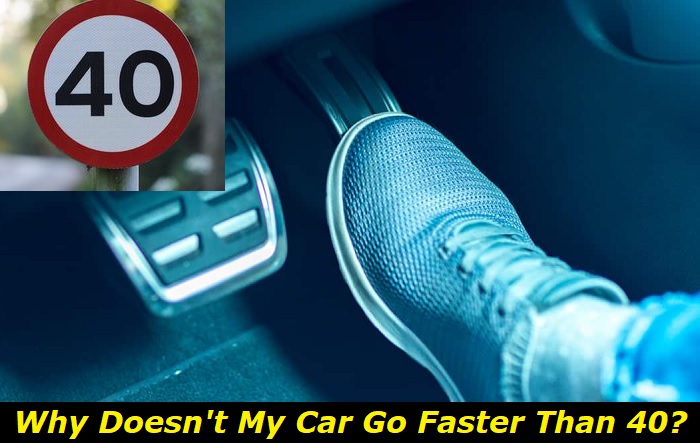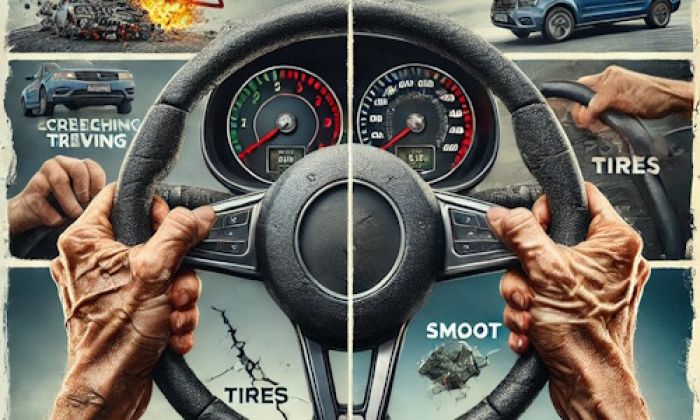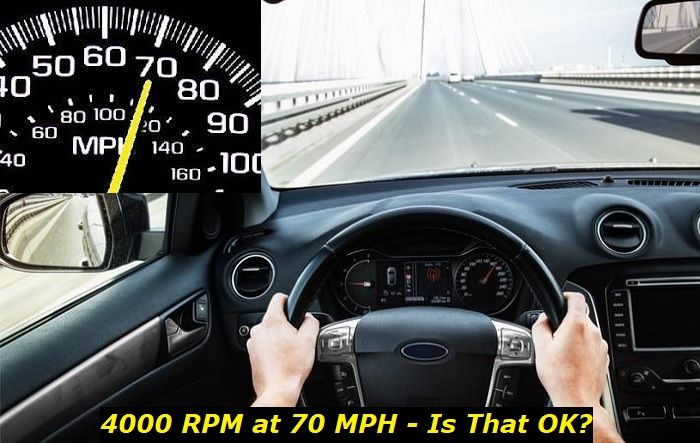If your car is moving sluggishly and failing to accelerate past 40mph, there are several issues to suspect. Gas engines have a complex multitude of interconnected components that all function optimally for your car to run smoothly.
Engine power problems highlights
- Level of urgency:Medium
- DIY inspection:Possible but may be complicated
- DIY repair:Sometimes, possible
- Cost of repair:$200 - $650
- Can you drive?In most cases, yes
- Commonreasons:A largelist of reasons, including fuel and air supply, electronics, glitches, but not limited to those.
- Ways to fix:Use code scanner to locate the problem and solve it

Mechanical Issues
The various moving parts in your combustion engine are liable to failure or malfunction due to a lack of proper servicing, wear and tear, mechanical damage, and poor driving habits. Here are the most common mechanical elements behind your car's sudden poor acceleration:
- Misaligned Timing Chain or Belt
When your car's timing chain is not aligned correctly, it will cause your engine exhaust and intake valves to open at the wrong times. Drivers undergoing this issue are likely to be warned by a lopey idle. This is when your engine surges or lopes (RPMs cycle erratically up and down) when your engine is idling.
The belt's wrong tension is the most common cause of a misaligned timing chain. It is either too loose or too tight, causing the belt to be off, timing by a tooth or more. If your belt was recently replaced, ensure it is installed at the proper tension to avoid bad timing for opening the exhaust and intake valves which are ultimately behind your acceleration challenges.
- Low Clutch Fluid or Slipping Clutch
Drivers who neglect to top up their clutch fluid will inevitably face issues with their accelerating power. A slipping clutch will also cause the same problem. Low fluid and a slipping clutch cause your gearbox to fail in its engagement with your engine. The result is that your RPM (engine) speed will increase while your actual speed remains at a frustrating 40mph.
- Exhaust Gas Recirculation Valve Malfunction
Your failure to accelerate may also be due to your exhaust gas recirculation valve being stuck open. An EGR valve stuck in the open position will cause too much exhaust to enter and build up in your system. This build-up reduces the volume of oxygen in your cylinder and drastically reduces your accelerating power.
The build of excessive exhaust in your system is likely to throw off some of your sensors, causing your car to enter a limp mode that actively prevents you from accelerating. It is important to note that if your EGR is stuck in a closed position, it only affects your accelerating power if your ECU sensors put your car in limp mode.
- Faulty or Clogged Catalytic Converter
A defective or clogged catalytic converter is not a common cause of accelerating power. However, a malfunctioning catalytic converter is dangerous because it creates excessive back pressure on your engine. The back pressure will initially manifest as a failure to accelerate, but your engine may eventually catch fire if left unattended.
Suppose a faulty catalytic converter is the cause of your loss of accelerating power. In that case, you are advised not to drive your car until a professional auto repair expert diagnoses and fixes the problem.
Electrical Problems
Modern cars are preinstalled with an ECM/ECU comprising various sensors that collect the data under your car's hood. These sensors take action (in case of an emergency) or notify you of a problem by displaying a warning light on your dashboard.
The efficient running of your car depends on the precise timing of combustion reactions and the proper mixture of gases. If any of your sensors is malfunctioning, you may face challenges starting your car or accelerating.
Where any of your sensors operate optimally, they are likely to respond to incorrect data by putting your car into limp mode or taking other integrated ECM/ECU system actions. The sensors that are likely to cause your sluggish acceleration directly include:
- Mass airflow sensor
- Throttle position sensor
- MAP sensor
- Coolant temperature sensor
- Camshaft sensor
- Oxygen sensor
- Crankshaft sensor
Airflow Issues
Air is a crucial requirement in your combustion engine. Acceleration problems are often caused by restricting your car's typical airflow. The most common cause of insufficient airflow is a worn-out, dirty, clogged, or damaged air filter.
Drivers are advised to replace their air filters at a specific mileage depending on the component's durability and the environment in which the car is regularly driven. Drivers in dusty and wet areas may need replacements more often than those in dry regions without a lot of dust or sand.
Refer to your service manual for guidance on when your air filter is due for replacement. If you are overdue, ensure you purchase a high-quality compatible replacement part. When shopping online, take care to buy an engine air filter and not a cabin air filter which is part of the HVAC system.
Your throttle plate (also called a butterfly valve) is contained in the throttle body. This valve controls the amount of air entering your intake manifold and is directly connected to your right foot's input. Where your butterfly valve is stuck in place, debris will likely build up and cause your car to suffer a rough idle.
Fuel Problems
Another common cause of acceleration issues is fuel failure to reach your combustion chamber in the recommended quantity. If you suspect fuel problems cause your inability to accelerate, it is wise to begin troubleshooting by inspecting your fuel filter.
- Clogged Fuel Filter
If your fuel filter is dirty or clogged with debris and sediment from fuel, it is advisable to purchase a high-quality compatible replacement. Some drivers opt to clean and dry their filters before reinstalling them.
Where the clogging is not too severe, the problem can also be fixed by an Italian tune-up where you drive as fast as you can on an open road. High speeds will likely restore your acceleration power by heating your engine to a temperature that burns off the oil sediments clogging your filter.
- Clogged Fuel Injectors
Dirty/clogged fuel injectors will hamper accelerating capacity by causing misfires. Faulty fuel injectors cannot provide a regular spray and thus disrupt the combustion process. In some cases, drivers can solve the problem by cleaning their fuel injectors using a fuel additive.
- Defective Fuel Pump
Your fuel pump will wear out over time-drivers who habitually drive with an almost empty tank are more likely to suffer a defective fuel pump. A tank with low fuel levels causes inadequate fuel pump cooling, thus shortening its shelf life. If your fuel pump has insufficient flow, it is advisable to replace it as soon as possible to prevent further damage to your car.
At times, motorists may suffer a fuel pump malfunction due to harmful gas with contaminants which cause slow acceleration. This problem has an east fix because all you need to do is drain your tank and refill it with reliable fresh fuel.
Spark Problems
Your car needs a timely spark to trigger an explosion in your combustion chamber to run efficiently. Your challenges accelerating past 40mph may be caused by wrong spark timing. A spark at the wrong time is ineffective and can ruin your engine.
Spark problems emanate from faulty spark plugs, ignition coils, and distributors. Your ignition coil has to convert your low battery voltage into the higher one necessary for jumping the spark past the gap on the spark plug. Modern cars have phased out distributors, so unless your car is an older model, it may not be the cause of your poor acceleration.
Defective Vacuum Hoses
Your engine vacuum refers to the air pressure inside your intake manifold compared to the atmospheric pressure. It is highest when your throttle is closed e.g. when your food is off the gas or when idling. Here the atmospheric pressure is higher than that in your intake manifold.
Intake manifold pressure is equal to atmospheric pressure when your throttle is open. As there is very little vacuum, turbocharged vehicles are likely to enter positive pressure when the turbo sends compressed air to your manifold.
Your vacuum hoses are linked to many components in your vehicle, including the fuel pressure regulator, brake booster, and EGR valve. A leak or defect in your hoses will cause these components to malfunction and possibly affect your accelerating power.
Your MAP and MAF sensors do not measure air leaking in or out of the system. Therefore, these leaks are likely to reduce your air-fuel ratio and thus your acceleration capacity.
Several other likely causes of poor acceleration will receive an honorable mention. These include:
- Engaged emergency brake
- Low fuel levels
- Poor compression - due to defective valves, piston rings, valve springs, cylinder linings, or gaskets.
- High altitude - due to the naturally lower oxygen levels.
- Limp mode - due to your ECU detecting a critical malfunction.
Final words
If your car is facing acceleration challenges, troubleshooting without professional help may prove challenging due to the many possible causes. It is advisable to consult an auto repair technician with experience diagnosing your make and model of vehicle.
About the authors
The CarAraC research team is composed of seasoned auto mechanics and automotive industry professionals, including individuals with advanced degrees and certifications in their field. Our team members boast prestigious credentials, reflecting their extensive knowledge and skills. These qualifications include: IMI: Institute of the Motor Industry, ASE-Certified Master Automobile Technicians; Coventry University, Graduate of MA in Automotive Journalism; Politecnico di Torino, Italy, MS Automotive Engineering; Ss. Cyril and Methodius University in Skopje, Mechanical University in Skopje; TOC Automotive College; DHA Suffa University, Department of Mechanical Engineering






Add comment